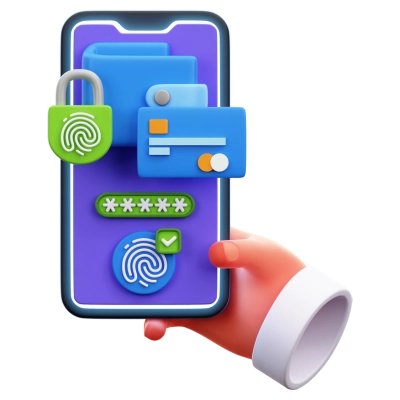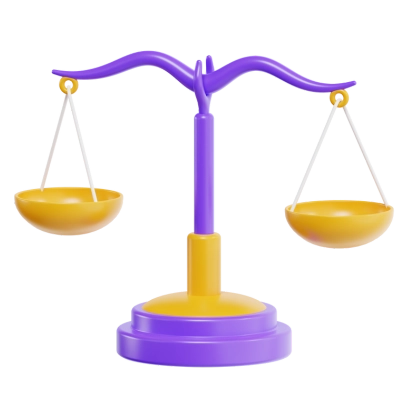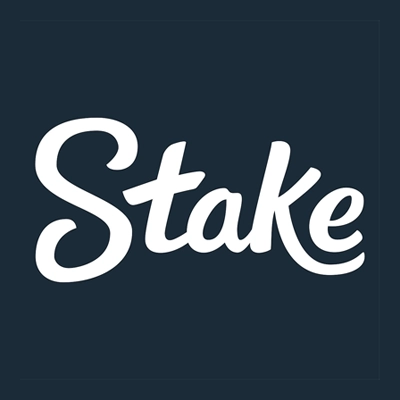Blockchain Technology in Casino Apps: Revolutionizing Security and Transparency

In an era where digital transactions are omnipresent, blockchain technology has emerged as a powerhouse of security and transparency, and that’s a bonus for the online casino industry!
Although its origin story came from cryptocurrencies like Bitcoin, blockchain technology offers a whole new decentralized ledger system—the system records all transactions across a network of computers, making it pretty much impossible to alter any recorded information without the consent and agreement of everyone involved. The foundational principle of blockchain, which is transparency on top of security, means it is a solid solution for so many of the challenges that plague online casino apps.
Casino apps, in their pursuit to provide entertaining and seamless gambling experiences, can come up against issues that are related to security and transparency. And players’ concerns about both the fairness of games and the safety of their financial transactions are the most important issue. The traditional centralized systems of online casinos, while generally considered pretty secure, still leave room for a few doubts to wiggle in due to their opaque nature and the possibility of internal fraud.
But with blockchain technology? Those doubts basically vanish. The system takes care of these worrisome issues by creating an environment where every bet, win, and transaction is transparently recorded and verifiable by anyone! This goes a long way in the area of game fairness and building up trust with users—and that’s how it’s revolutionizing security and transparency.
Basics of Blockchain in Online Gambling
Blockchain technology has quickly turned into a go-to system in the online gambling world, providing a super strong solution to a lot of the transparency and security issues that have made users wary in the past about safe financial transactions in this industry.
Definition and Functionality
This technology operates on principles of decentralization and cryptographic hashing—a fancy term for a process that verifies the authenticity and integrity of the data without revealing any sensitive details. And in the context of online gambling, this means that once a bet is logged on the blockchain, it becomes part of an unchangeable public record, preventing any chance of tampering or revision after the fact.
The Key Features of Blockchain
There are three fundamental features that make blockchain technology particularly attractive for online gambling, and they include the following:
- Decentralization: Unlike traditional systems, where only one single entity has control, blockchain disperses control across a wide network of computers. This means no single party can manipulate outcomes without detection, offering a more democratic and secure system.
- Immutability: Once data is entered into the blockchain, it is extremely difficult to alter. This permanence ensures the integrity of gaming outcomes and financial transactions, which is critical for trust in gambling platforms.
- Transparency: Every single transaction on a blockchain is visible to all participants and can be verified at any time. This transparency helps assure players that games are fair and operations are conducted completely out in the open.
Blockchain Types Used in Gambling
In the gambling sector, a couple of different kinds of blockchain cater to varying needs regarding governance, privacy, and scalability:
- Public Blockchains: Like Bitcoin and Ethereum, these are open to anyone and offer maximum transparency. They are great for operators who want to showcase their commitment to fair, transparent gaming.
- Private Blockchains: Operated by single organizations, these allow greater control over who participates in the network, often resulting in faster transactions. They are suitable for casino operators who need to maintain privacy while still leveraging blockchain’s security benefits.
- Consortium Blockchains: A hybrid model, these are controlled by a group rather than one single entity, meaning there is a balance between transparency and control. They are ideal for collaborative casino operations where multiple stakeholders need to manage the blockchain jointly.
Each type of blockchain proffers distinct advantages and is picked based on the specific requirements and trust levels desired by casino app developers and users. By integrating these technologies, online gambling platforms can greatly improve their credibility and security, ultimately providing a better and safer gaming experience.
Enhancing Security with Blockchain
Blockchain technology is not just changing the way that people think about and view financial transactions; it’s also setting new and previously unthought-of standards for security in the online gambling industry.

Secure Transactions
Blockchain verifies the security of transactions through its inherent design: each transaction is encrypted and added to a new “block” in a chronological chain. The unique aspect of blockchain is its cryptographic hash function, which links these blocks in a way that makes it virtually impossible to alter any single piece without altering all subsequent blocks. This tamper-proof feature provides an added layer of security, certifying that every bet, win, and payout is recorded exactly as it occurs—free from any type of manipulation.

Preventing Fraud
One of the most significant advantages of blockchain technology is its ability to prevent fraud. The decentralized nature of blockchain means that there is no central point of failure, reducing the risk of internal fraud and external hacking attempts. Each transaction on a blockchain is transparent and recorded on a ledger that is distributed across numerous nodes (computers), making unauthorized changes extremely difficult. Since every transaction is traceable and permanent, it provides a clear audit trail that can be used to detect and prevent fraudulent activities in real time.

Protection of Personal Data
In the realm of online gambling, protecting users’ sensitive personal and financial information is the most important factor, and blockchain puts forward a serious solution by allowing personal data to be stored in a decentralized and encrypted format. Instead of storing sensitive info on a central server that could be vulnerable to data breaches, blockchain disperses this data across its network, seriously reducing the risk of identity theft.
And blockchain is able to employ sophisticated cryptographic techniques to anonymize user data, meaning that even if data is accessed, it cannot be linked back to any person. This not only increases security but also gives users more control over their personal information.
By integrating blockchain technology, online gambling platforms can strengthen and upgrade their security measures, making the gaming environment safer and more trustworthy for all who want to play!
Improving Transparency in Casino Apps
Blockchain technology is not just reinforcing security in the online gambling industry; it’s also revolutionizing the way transparency is maintained, thereby increasing trust among users.

Fairness Verification
One of the standout features of blockchain in casino apps is the ability to verify game fairness through what’s known as “provably fair” algorithms. These algorithms utilize blockchain technology to allow players to verify the randomness and fairness of game outcomes. Before each game begins, the casino generates a cryptographic hash of the outcome and sends it to the player.
After the game, players can use this hash to verify that the outcome was pre-determined and not altered. This transparency shows that each game played is fair, and all participants have the same chances of winning, fundamentally changing the trust landscape in online gambling.

Audit Trails
The immutable nature of blockchain creates a permanent and transparent audit trail for every transaction. Every single wager, win, and payout is recorded on the blockchain, providing a publicly verifiable history that can be accessed by anyone at any time.
This level of openness helps build trust between casino operators and their users, as it allows players to see that the games are run fairly and squarely and that payouts are made according to the rules. This transparency not only deters fraudulent activities but also increases user confidence in the platform.

Smart Contracts
Smart contracts are self-executing contracts with the terms of the agreement directly written into lines of code. These contracts run on blockchain networks, which means they operate in a completely transparent and tamper-proof environment. In the context of online gambling, smart contracts can be used to automate payouts and other transactional processes.
For example, when certain conditions are met—like a player winning a game—the smart contract automatically executes the payout based on the predefined rules. This automation not only reduces the potential for human error and manipulation but also means that transactions are conducted transparently and efficiently.
The integration of blockchain technology into casino apps brings an entirely new (and welcomed) level of transparency that is critical for establishing and maintaining trust. By allowing for fairness verification, providing transparent audit trails, and utilizing smart contracts, blockchain technology makes it easier for users to trust in the fairness and reliability of online gambling platforms.
Real-World Applications and Case Studies
Blockchain technology is continually making its way into various sectors, and the online gambling industry is not being left out of this trend. There are a few casino apps that have already adopted this technology, which is showing encouraging results in terms of security and transparency. While the most well-known and reputable online casinos have yet to hop on the blockchain train, here are some of the real-world applications and the experiences of users who have interacted with the blockchain-based platforms.
Blockchain Casino Apps

BitCasino.io: One of the pioneers in this space, BitCasino.io leverages blockchain to offer a provably fair gaming experience. As one of the first licensed Bitcoin casinos, it has set a high standard for transparency and security, utilizing blockchain to verify the fairness of its games publicly.

FunFair: Powered by its own ERC-20 token, FunFair uses blockchain technology to offer a decentralized gaming platform. The platform reduces costs associated with gaming transactions and operational fees while ensuring transparency and fairness. Its use of smart contracts automates and ensures the integrity of payouts and gameplay.

Stake.com: This platform has gained popularity for its integration of blockchain technology, providing transparency across its vast array of casino games and sports betting options. Stake.com uses proprietary technology to offer provably fair games where users can independently verify each transaction’s integrity on the blockchain.
User Experiences
Feedback from users of blockchain-based casino apps usually highlights the following benefits:
- More Trust: Users often cite the ability to verify game fairness independently as a huge trust booster. The transparency of blockchain allows them to confirm that games are not manipulated, which is especially valued in an online setting.
- Security: The decentralized online casinos gives users peace of mind regarding the security of their funds. Transactions on these platforms are secured through advanced cryptography, reducing the risks of hacking and fraud.
- Speed and Efficiency: Many users appreciate the speed of transactions on blockchain platforms, facilitated by smart contracts that automate payouts and other processes without human intervention.
However, there are challenges as well:
- Technical Complexity: Some users find the technical aspects of using blockchain and cryptocurrencies daunting. The need to manage wallets and understand blockchain operations can be a barrier for less tech-savant players.
- Regulatory Uncertainty: The rapidly changing regulatory landscape for cryptocurrencies and blockchain technology can create uncertainty and confusion for users, particularly in jurisdictions where the legal status of such technologies is unclear.
Case Studies
One case study, titled “On the Potential Benefits of Blockchain Technology in Gambling: A Perspective on Harm Reduction,” was written by Devin J Mills and finds the following:
“Purpose of Review: This review highlights the fragmented network of gambling operators as a significant obstacle to effective harm reduction (HR) settings (e.g., bet/spend limits, self-exclusion). Players struggle to track their betting across operators without the ability to set universal limits, a situation exacerbated by the rising accessibility of gambling in the US. Using the strengths of blockchain technology as a digital ledger that securely records transactions, the present commentary proposes a blockchain ecosystem that could enhance bet tracking and enable the universal application of HR settings.
“Recent Findings: Past research on blockchain technology within the context of gambling largely focuses on cryptocurrencies as a payment method. While a concern for regulators, the focus of the present paper is on the largely unexplored area of decentralized gambling applications and their potential in facilitating HR settings via smart contracts (i.e., digitally self-executing contracts). Theoretically, smart contracts could be tailored to consider players’ HR settings prior to a bet being approved. When included within a unified blockchain network, players’ real-time gambling activities would be tracked in conjunction with their universally applied HR settings, thus enhancing the efficacy of these HR settings.
“The proposal for a blockchain ecosystem aims to create a safer gambling landscape by simplifying bet tracking, and thus, increasing adherence to limit settings across operators and platforms. Despite potential scalability issues as well as legal challenges, this innovative approach would reduce risks and foster safer gambling practices. Future directions for research and policy development are offered,” were the summary findings.
Another case study approaches the issue from a different angle, titled “Blockchain’s value proposition for online gambling: The operators’ perspective.”
The text discusses the transformative impact of digital technologies on industries, focusing on the adoption and integration of blockchain technology within the online gambling sector. The Diffusion of Innovation (DOI) theory is employed to analyze how new technologies like blockchain are adopted, highlighting the influence of regulatory bodies, barriers, facilitators, and stakeholder attitudes towards this technology. The integration of such technologies is seen as a competitive advantage that needs to be aligned with a company’s strategic goals.
The Delphi method (DM) is utilized for the study to explore the adoption of business model innovation in the online gambling industry. This method, which involves expert consensus, has not been widely used in studies focusing on the online gambling industry’s value proposition. It was chosen due to its effectiveness in studying the impact of blockchain on business models, as seen in previous research.
In terms of results, the initial rounds of the Delphi study achieved a 40% consensus among experts on various issues, including the complex issue of maintaining privacy while complying with KYC (Know Your Customer) and anti-money laundering laws. This reflects the nuanced challenges and considerations in implementing blockchain in this sector.
The discussion and conclusions reaffirm the potential of blockchain to revolutionize the online gambling industry by creating a new value proposition. However, the immediate adoption faces challenges such as the complexity of the technology, the need for regulatory changes, initial costs, and skepticism from stakeholders. Despite these hurdles, there is a consensus among experts that blockchain can enhance the business models of online gambling operators by improving transparency and operational efficiency.
These real-world examples, user experiences, and case studies showcase both the potential benefits and the negatives of integrating blockchain technology in casino apps. The overall positive feedback, however, suggests that the advantages far outweigh the challenges, marking a pretty big shift in the right direction in the evolution of online gambling platforms.
Challenges and Limitations of Blockchain in Casino Apps
While blockchain technology has brought a new level of transparency and security to online gambling, it does have a few potential challenges. These obstacles could possibly affect the adoption and functionality of blockchain within the casino app industry.
Technical Complexity
Implementing blockchain technology in casino apps introduces a significant level of technical complexity. For existing platforms, transitioning to a blockchain-based system can require extensive changes to their software architecture. This includes:
- Integrating new technologies for handling blockchain transactions
- Securing data
- Ensuring that all game mechanics work seamlessly with blockchain’s decentralized nature
Moreover, for casino operators and users alike, there is a steep learning curve associated with understanding and managing blockchain operations and cryptocurrency transactions. This complexity can be a pretty big barrier to entry for both operators looking to adopt blockchain and players who are new to this technology.
Regulatory Issues
The regulatory landscape for blockchain and cryptocurrency in gambling is still evolving and varies widely by jurisdiction. Many countries have not yet fully addressed the legal aspects of blockchain applications in gambling, creating a patchwork of regulations that can be confusing for operators and restrictive in terms of the technology’s potential.
For example, the legal status of using cryptocurrencies for gambling is unclear in many regions, and regulatory compliance can be challenging to maintain as laws change. This uncertainty can deter casino apps from fully embracing blockchain, as they must navigate these legal complexities while trying to innovate.
Scalability Concerns
Scalability is a major issue for blockchain networks, especially those like Bitcoin and Ethereum, which have experienced slow transaction times and high costs during periods of high demand. For casino apps, where numerous transactions must be processed swiftly to ensure a smooth user experience, scalability can be a limiting factor.
While newer blockchain technologies offer improvements in this area, the challenge remains to integrate these solutions without compromising transaction speed or inflating costs. Additionally, the energy consumption associated with maintaining a blockchain network can be substantial, which raises further concerns regarding sustainability and efficiency.
Addressing and tackling these challenges is super important for the broader adoption and success of blockchain technologies in the casino app industry. As the technology advances and more personalized solutions are developed and introduced, it is likely that most of these barriers can be ironed out, allowing for a more seamless integration of blockchain into this dynamic sector.
The Future of Blockchain in Online Gambling
As the digital landscape keeps growing, blockchain technology is set to play a pivotal role in the future of online gambling. Its potential for further transformation of the industry depends on emerging trends, integration with other cutting-edge technologies, and the changing global legal environment.
Emerging Trends
Future developments in blockchain technology could augment the operational capabilities of online gambling platforms. One such promising trend is the advancement of “Layer 2” solutions, like the Lightning Network for Bitcoin, which would be able to handle transactions off the main blockchain to increase speed and reduce costs.
Additionally, the growing use of interoperable blockchain platforms could allow for a seamless exchange of assets across different gambling platforms without the need for intermediaries, further boosting the user experience and trust.
Integration with Other Technologies
The potential for blockchain to integrate with other emerging technologies, such as Artificial Intelligence (AI) and the Internet of Things (IoT), is considerable. AI can be used to improve customer service and personalization in casino apps, while blockchain can secure AI-driven processes by making them transparent and tamper-proof.
Take AI as an example—it could dynamically adjust game recommendations based on player behavior, with blockchain verifying the fairness of AI decisions. Meanwhile, IoT could add to physical gambling environments (like live casinos) by linking IoT devices with blockchain to guarantee that all player interactions are recorded and analyzed securely and transparently.
Global Adoption and Legal Landscape
The potential for global adoption of blockchain in online gambling is good, but it largely depends on the evolving legal frameworks across different countries. As blockchain becomes more mainstream, it’s likely that more countries will begin to recognize and regulate its use in gambling applications, providing clearer guidelines and greater security for both players and operators. This will help mitigate some of the current uncertainties and make way for more widespread adoption. Moreover, as public awareness and understanding of blockchain technology grow, consumer demand for blockchain-based gambling solutions is expected to increase, pushing the industry toward broader acceptance and integration.
We feel that the future of blockchain in online gambling looks really promising, and we are definitely not alone in this sentiment!
There are so many opportunities for growth and innovation. The continuous evolution of technology, coupled with an increasingly favorable legal environment, could soon make blockchain an integral part of the online gambling world, fundamentally improving the way games are played, managed, and experienced.
Conclusion
Blockchain technology is poised to fundamentally change the landscape of online gambling by enhancing security and transparency, two critical factors in building trust and user satisfaction. By providing an immutable ledger and facilitating transactions that are both transparent and tamper-proof, blockchain addresses long-standing concerns about fairness and safety in online gambling. This technology not only ensures that game outcomes are fair and that financial transactions are secure but also opens up new possibilities for user engagement and game development.
Looking at the potential changes, blockchain could bring about, it’s clear that the future of online gambling could look wildly different. As blockchain technology continues to evolve and become more integrated into this industry, we can expect a more reliable and open gambling environment. This evolution will likely attract a broader audience, foster more innovation, and possibly shift regulatory frameworks globally.
For those who want to know more about this topic or add to the conversation, we encourage you to explore more resources on blockchain technology and its applications in online gambling. Here are a few to get you started:
- Altcoin Investor gives a comprehensive overview of how blockchain is revolutionizing online gambling. It covers various aspects, such as the role of crypto payment gateways, the security advantages of blockchain, and the emerging trends in decentralized gambling platforms.
- CryptoBetting lists and reviews the top blockchain gambling sites of 2024. This is a helpful resource if you’re looking for platforms that offer a good mix of security, user experience, and game variety. It also discusses the importance of choosing platforms that are legally compliant and secure.
These websites give valuable insights into the current and future applications of blockchain in the gambling industry, helping both consumers and developers understand both the benefits and challenges associated with this technology.
Whether you are a developer, a gamer, or just a curious reader, your insights and experiences are valuable! Engaging in discussions, sharing views, and staying informed will help shape the future of online gambling, making it safer and more enjoyable for everyone involved.
We’d love to hear your thoughts on how blockchain could further impact the gambling world or suggest additional resources for our readers, so drop us a line!




